第1章 INTRODUCTION
In writing this brief sketch of the Life of Tennyson, and this attempt to appreciate his work, I have rested almost entirely on the Biography by Lord Tennyson (with his kind permission) and on the text of the Poems. As to the Life, doubtless current anecdotes, not given in the Biography, are known to me, and to most people. But as they must also be familiar to the author of the Biography, I have not thought it desirable to include what he rejected. The works of the "localisers" I have not read: Tennyson disliked these researches, as a rule, and they appear to be unessential, and often hazardous. The professed commentators I have not consulted. It appeared better to give one's own impressions of the Poems, unaffected by the impressions of others, except in one or two cases where matters of fact rather than of taste seemed to be in question. Thus on two or three points I have ventured to differ from a distinguished living critic, and have given the reasons for my dissent. Professor Bradley's Commentary on In Memoriam came out after this sketch was in print. Many of the comments cited by Mr Bradley from his predecessors appear to justify my neglect of these curious inquirers.
The "difficulties" which they raise are not likely, as a rule, to present themselves to persons who read poetry "for human pleasure."I have not often dwelt on parallels to be found in the works of earlier poets. In many cases Tennyson deliberately reproduced passages from Greek, Latin, and old Italian writers, just as Virgil did in the case of Homer, Theocritus, Apollonius Rhodius, and others.
There are, doubtless, instances in which a phrase is unconsciously reproduced by automatic memory, from an English poet. But I am less inclined than Mr Bradley to think that unconscious reminiscence is more common in Tennyson than in the poets generally. I have not closely examined Keats and Shelley, for example, to see how far they were influenced by unconscious memory. But Scott, confessedly, was apt to reproduce the phrases of others, and once unwittingly borrowed from a poem by the valet of one of his friends! I believe that many of the alleged borrowings in Tennyson are either no true parallels at all or are the unavoidable coincidences of expression which must inevitably occur. The poet himself stated, in a lively phrase, his opinion of the hunters after parallels, and I confess that I am much of his mind. They often remind me of Mr Punch's parody on an unfriendly review of Alexander Smith -"Most WOMEN have NO CHARACTER at all." --POPE.
"No CHARACTER that servant WOMAN asked." --SMITH.
I have to thank Mr Edmund Gosse and Mr Vernon Rendall for their kindness in reading my proof-sheets. They have saved me from some errors, but I may have occasionally retained matter which, for one reason or another, did not recommend itself to them. In no case are they responsible for the opinions expressed, or for the critical estimates. They are those of a Tennysonian, and, no doubt, would be other than they are if the writer were younger than he is. It does not follow that they would necessarily be more correct, though probably they would be more in vogue. The point of view must shift with each generation of readers, as ideas or beliefs go in or out of fashion, are accepted, rejected, or rehabilitated. To one age Tennyson may seem weakly superstitious; to another needlessly sceptical. After all, what he must live by is, not his opinions, but his poetry. The poetry of Milton survives his ideas; whatever may be the fate of the ideas of Tennyson his poetry must endure.